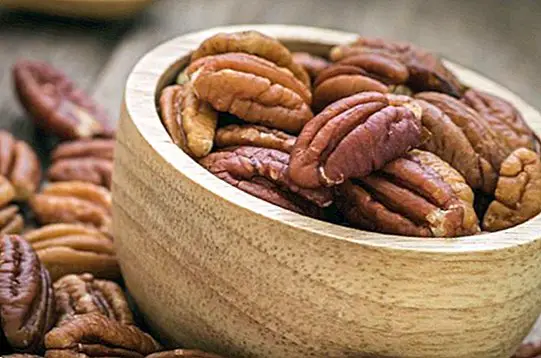The feeding of the child: carbohydrates, proteins and fats

The different nutritional needs of the organism vary from one individual to another, especially in the age or period in which it is found. This is one of the main reasons why, the child diet and the child feeding in itself, it must be very careful, so that the foods that best cover are chosen, therefore, the different nutritional needs of children and youth.
But not only must the nutritional needs of children be taken into account. If we take into account the latest data from the World Health Organization (WHO), which warns that 17.6 million children under 5 suffer from obesity, it is clear that in addition to meeting the nutritional needs of the youngest the house, it is important to monitor your weight adequately.
How? Trying to ensure that your diet is balanced, varied and above all healthy, eliminating foods and food products that are not recommended (such as sweets, breakfast cereals with high sugar content, cookies, sweets, salty snacks ...), and also try to stay active .
How should the children's diet be?
The carbohydrates
With regard to the carbohydrates in infant feeding, both in the student and in the child itself are synonymous with energy, which is why they should never be missing in the daily menu.
Good and especially healthy sources of carbohydrates are fruit, vegetables, legumes, rice, pasta, potatoes, wheat (especially in bread, flour and wholemeal pasta), and corn.
Care must be taken that its consumption is not excessive, since both children and adults, an excess of carbohydrates can contribute to the appearance of obesity, and even accentuate heart problems and diabetes.
We can also cover the nutritional needs of carbohydrates from other foods, although it is much more advisable to opt for those that we have mentioned in previous lines.
Remember also that there are two types of carbohydrates: those carbohydrates of rapid absorption (consisting of glucose, fructose or dextrose) and slowly absorbed carbohydrates (formed by more complex molecules).

What carbohydrates are better?
We must not forget that slowly absorbed carbohydrates (also known as complex carbohydrates) are much healthier, because they are digested more slowly by our digestive system and in addition to providing satiety do not pass so quickly to our blood, with the peaks in glucose that this causes.
Therefore, the key is always to opt for healthy and nutritious foods in our children's diets, eliminating fried, battered, precooked foods, trinkets or pastries.
As we can see in detail in future articles, the carbohydrates for example they can be obtained from fruits, vegetables, legumes, rice, pasta, potato, wheat or corn.
Proteins
Infants have a high need for protein. With regard to the proteins, you should consume daily, and at least, 1 gram of protein per kilogram of weight.
We can find them in milk, eggs, cheese, chicken, fish, rice, potatoes, lentils or soy, to name just a few examples.

The fats
The moderate consumption of fats They are extremely useful, since fats are responsible for storing and distributing the energy that the child's body needs, while also being responsible for absorbing some vitamins.
Of course, we must control what type of fat consumed by the child, and what are included in your diet. In the case of both children and adolescents, the excess of saturated fats should be monitored, especially in foods of animal origin that are commonly consumed, such as milk, butter and other dairy products, sausages and sauces.
Therefore, the really advisable thing is to try to contribute mostly fats of vegetable origin, which we find especially in olive oil.
Nor should we forget the consumption of foods rich in minerals and vitamins, as they are also essential and essential nutrients in the daily diet of the child and the young student. This article is published for informational purposes only. You can not and should not replace the consultation with a Pediatrician. We advise you to consult your trusted pediatrician. ThemesInfant feeding


